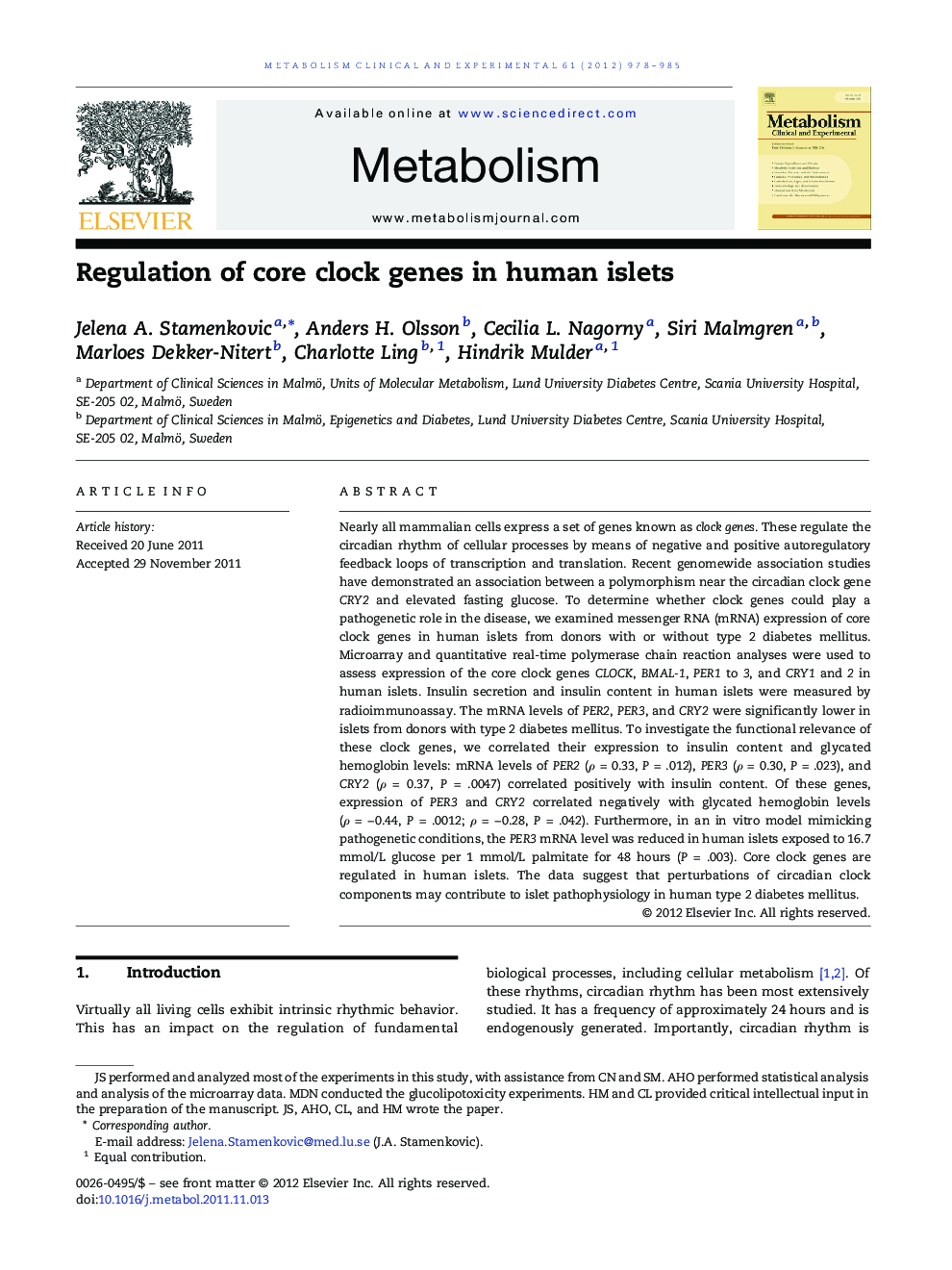| کد مقاله | کد نشریه | سال انتشار | مقاله انگلیسی | نسخه تمام متن |
|---|---|---|---|---|
| 5903711 | 1157104 | 2012 | 8 صفحه PDF | دانلود رایگان |
عنوان انگلیسی مقاله ISI
Regulation of core clock genes in human islets
دانلود مقاله + سفارش ترجمه
دانلود مقاله ISI انگلیسی
رایگان برای ایرانیان
موضوعات مرتبط
علوم زیستی و بیوفناوری
بیوشیمی، ژنتیک و زیست شناسی مولکولی
علوم غدد
پیش نمایش صفحه اول مقاله

چکیده انگلیسی
Nearly all mammalian cells express a set of genes known as clock genes. These regulate the circadian rhythm of cellular processes by means of negative and positive autoregulatory feedback loops of transcription and translation. Recent genomewide association studies have demonstrated an association between a polymorphism near the circadian clock gene CRY2 and elevated fasting glucose. To determine whether clock genes could play a pathogenetic role in the disease, we examined messenger RNA (mRNA) expression of core clock genes in human islets from donors with or without type 2 diabetes mellitus. Microarray and quantitative real-time polymerase chain reaction analyses were used to assess expression of the core clock genes CLOCK, BMAL-1, PER1 to 3, and CRY1 and 2 in human islets. Insulin secretion and insulin content in human islets were measured by radioimmunoassay. The mRNA levels of PER2, PER3, and CRY2 were significantly lower in islets from donors with type 2 diabetes mellitus. To investigate the functional relevance of these clock genes, we correlated their expression to insulin content and glycated hemoglobin levels: mRNA levels of PER2 (Ï = 0.33, P = .012), PER3 (Ï = 0.30, P = .023), and CRY2 (Ï = 0.37, P = .0047) correlated positively with insulin content. Of these genes, expression of PER3 and CRY2 correlated negatively with glycated hemoglobin levels (Ï = â0.44, P = .0012; Ï = â0.28, P = .042). Furthermore, in an in vitro model mimicking pathogenetic conditions, the PER3 mRNA level was reduced in human islets exposed to 16.7 mmol/L glucose per 1 mmol/L palmitate for 48 hours (P = .003). Core clock genes are regulated in human islets. The data suggest that perturbations of circadian clock components may contribute to islet pathophysiology in human type 2 diabetes mellitus.
ناشر
Database: Elsevier - ScienceDirect (ساینس دایرکت)
Journal: Metabolism - Volume 61, Issue 7, July 2012, Pages 978-985
Journal: Metabolism - Volume 61, Issue 7, July 2012, Pages 978-985
نویسندگان
Jelena A. Stamenkovic, Anders H. Olsson, Cecilia L. Nagorny, Siri Malmgren, Marloes Dekker-Nitert, Charlotte Ling, Hindrik Mulder,